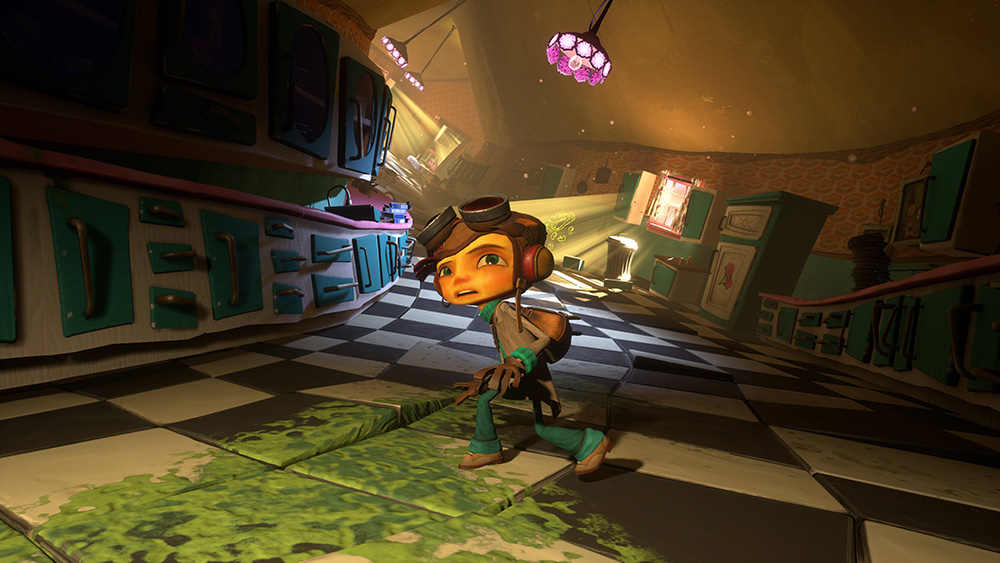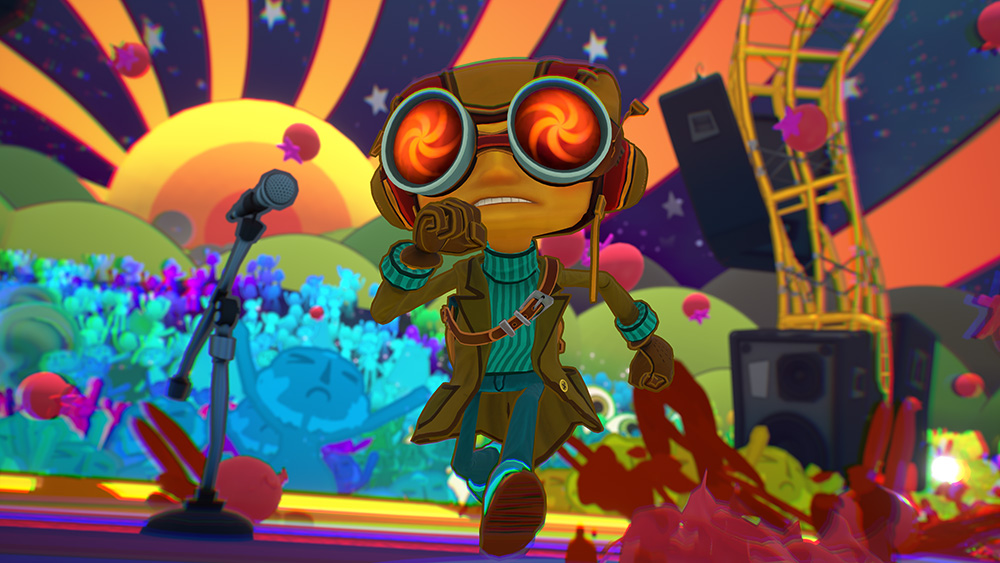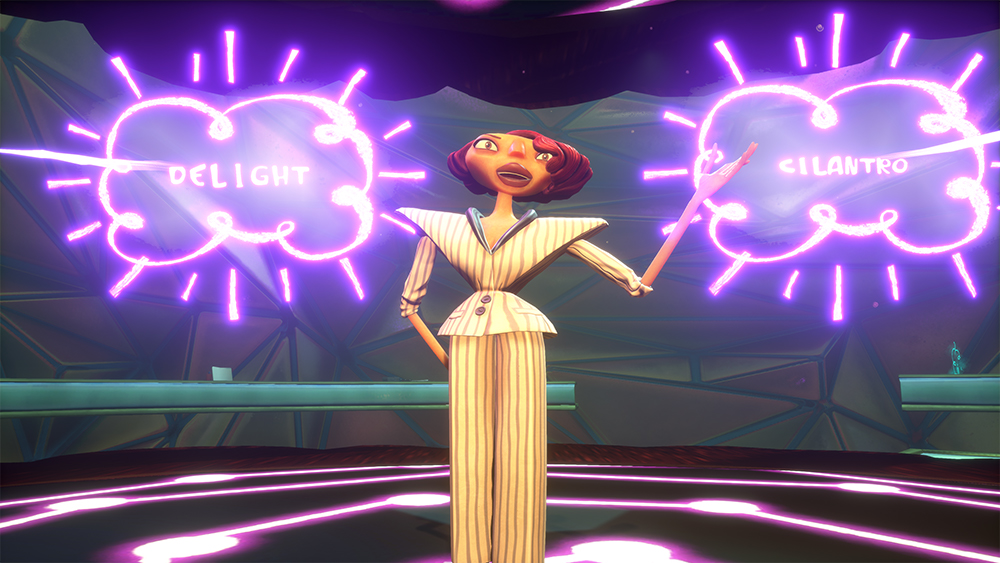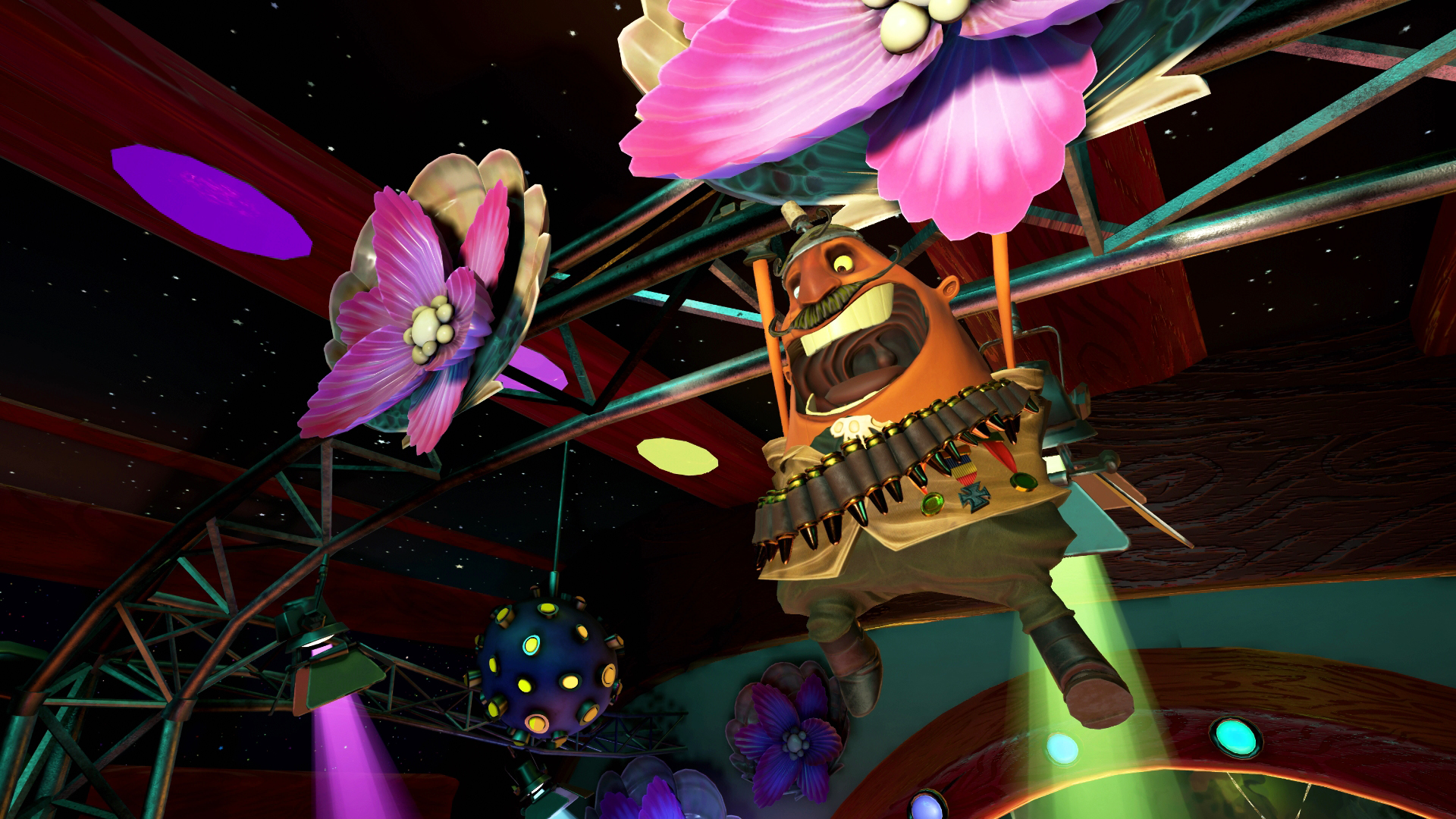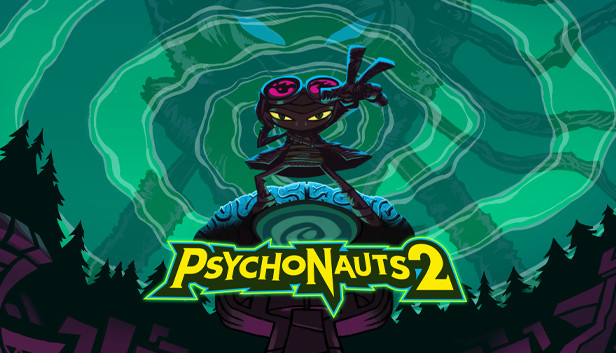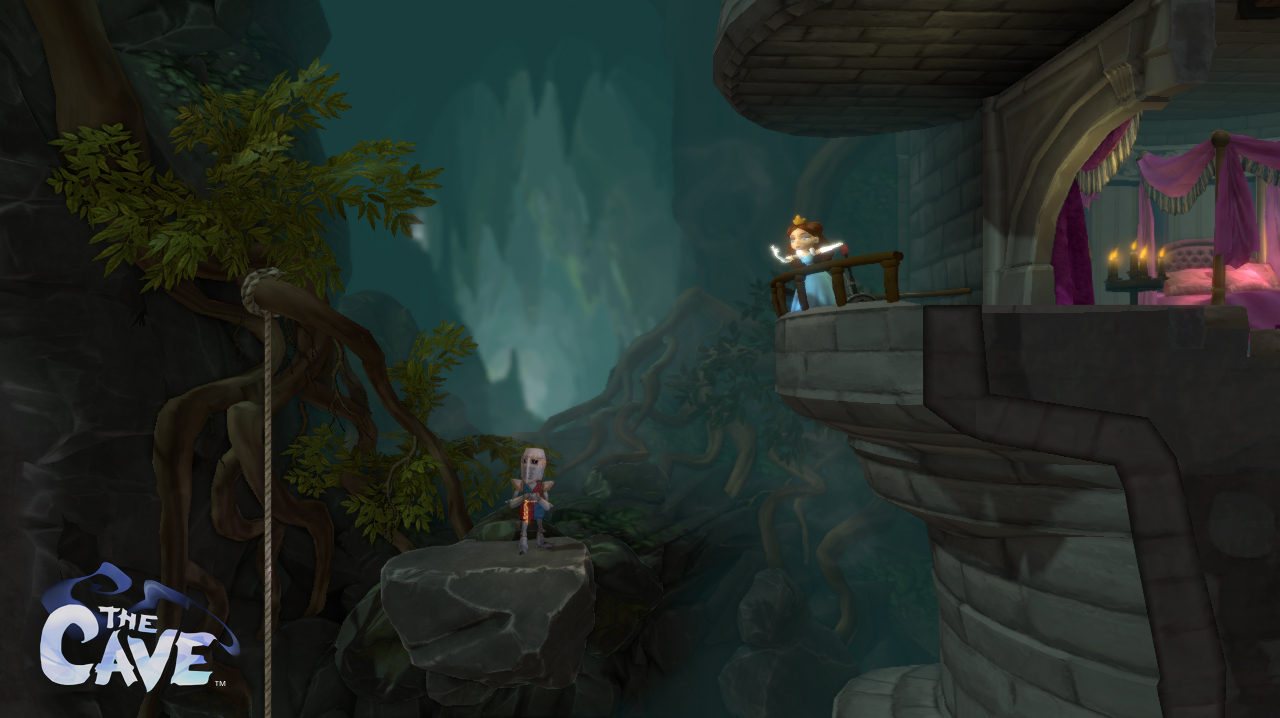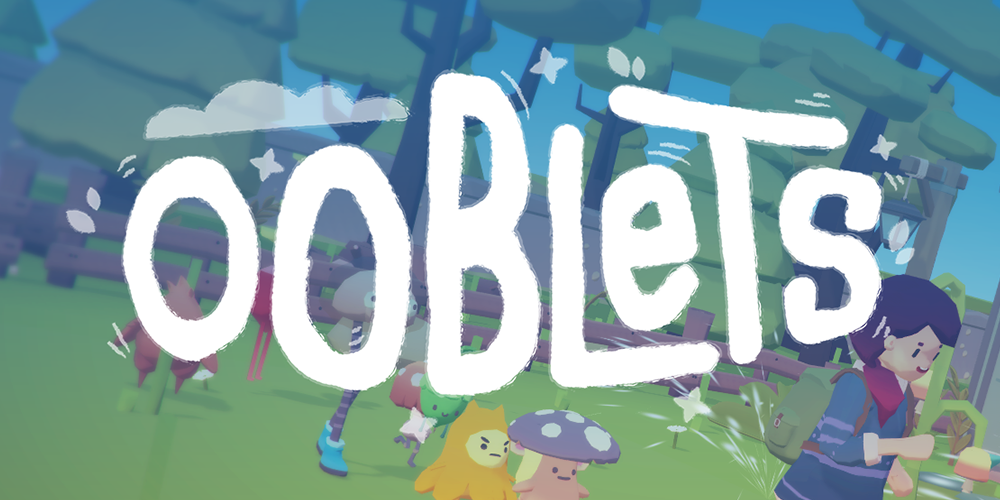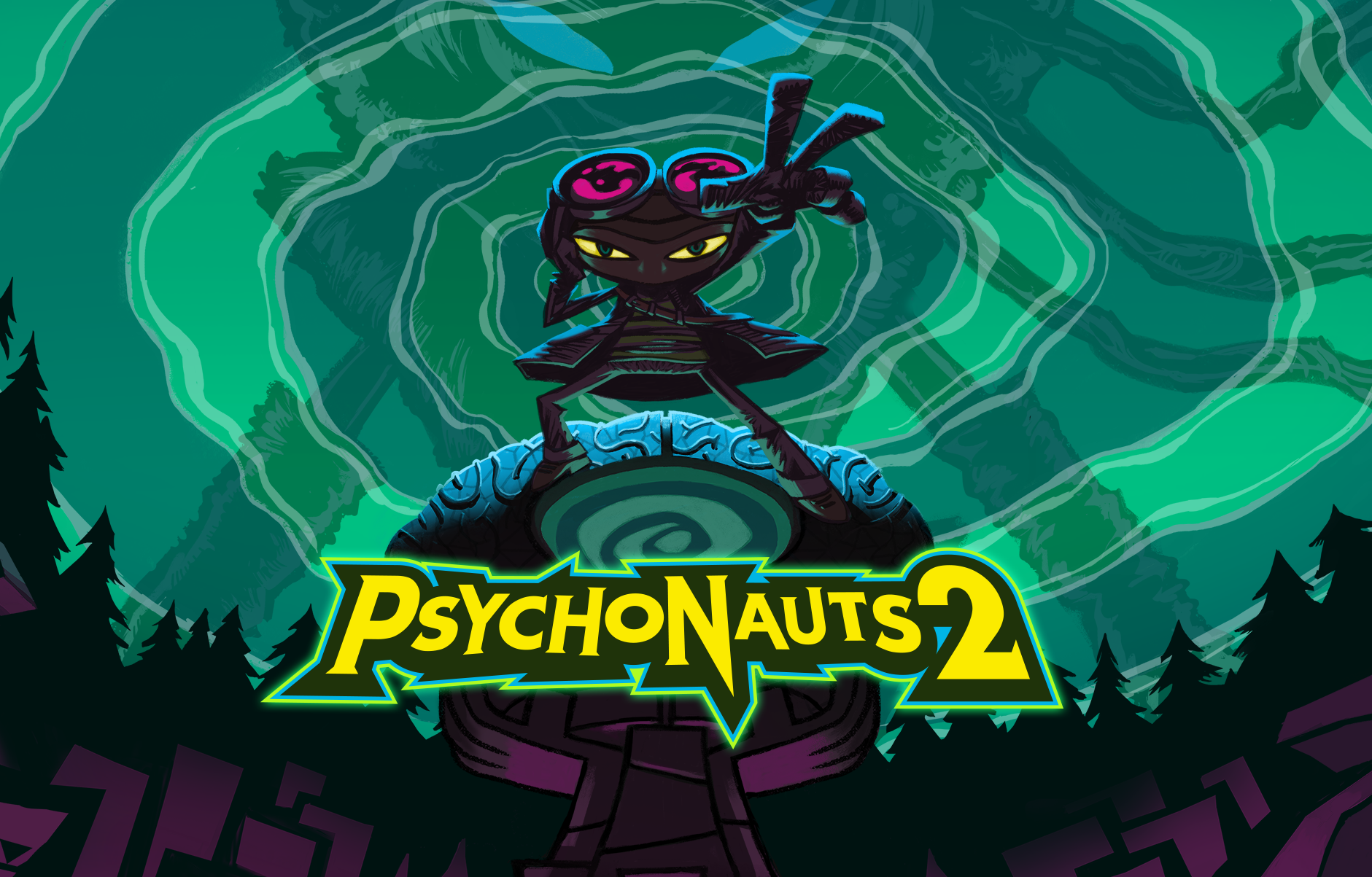
Psychonauts launched Tim Schaefer’s Double Fine Productions when it was released in 2005, and despite a troubled development and low initial sales, came to be regarded as a cult classic. The premise played to the strengths of writers Tim Schaefer and Erik Wolpaw, with smart dialogue paired with memorably odd characters, while the kooky art direction and imaginative worlds set a standard for Double Fine’s catalogue for years to come. After 16 years, a crowdfunding drive and Double Fine’s acquisition by Xbox, a sequel has finally arrived on Xbox Series X|S and Xbox One via Game Pass, PS4 and PC. Sequels to beloved cult classics released after long gaps do tend to be a little more Zoolander 2 than Mad Max: Fury Road, but I come bearing very good news indeed – Psychonauts 2 is Double Fine’s best game to date.
It’s certainly their most confident, almost effortlessly whizzing through one insanely creative scenario after another, with no idea disregarded without being examined and analysed in full. Psychonauts 2‘s premise is ingenious to this end. Players take on the role of 10-year old Razputin Aquato, a new intern training to become one of the ‘Psychonauts’, a spy agency who use psychic abilities not just for the safety of the world, but to enter the minds of the mentally unwell or distressed and help them overcome their issues. While Raz is thrilled to finally join Psychonauts HQ, albeit working out of the mailroom, as well as to ascertain the precise nature of his relationship with new girlfriend Lili, there’s strange things afoot in the agency. There’s rumblings of a resurrection of Maligula, the greatest enemy encountered by the Psychonauts’ founding ‘Psychic Six’, and evidence of a mole working from within. While Raz is at the bottom tier of his particular corporate pyramid, he quickly finds himself caught up in visiting the minds of some of the key players in the history of the Psychonauts, uncovering the secrets behind the birth of the organisation.
There’s a lot of twists and turns, heists and battles, but Psychonauts 2 also a rather sweet story. Despite the high physical stakes throughout, the emotional wellbeing of characters is what’s really at stake, and what’s frequently at the forefront of Raz’s actions. Of course, you can expect lots of sharp humour and charming gags, but there’s also a real warmth and humanity at the centre of Psychonauts 2 that shines through.
Each mind Raz visits is shaped by that person’s current mental state, hopes, desires and memories, and each is completely different to the next. In one, you’ll be finding aspects of a someone’s personality filed away as books in a labyrinthine library. In another, someone’s feelings of being overwhelmed and fear of judgment manifest into a high-intensity Overcooked-style cooking TV show. The standout mindscape is a ‘brain in a jar’ Raz encounters, voiced by Jack Black, deprived of sensation or stimulus for years. It’s about as high-concept as you can get, and Double Fine really juice every drop of potential from the idea, as Raz enters his mind to first slowly re-awaken him and help him connect to the world, and then deal with the flood of input and sensations from his long-dormant five senses. It manifests as a music festival kaleidoscope of colour, song and trippy imagery, stunningly conveyed as the brain rediscovers sight, sound, smell, taste and touch, and it’s an idea that I doubt anyone else could have pulled off.
The real joy of Psychonauts 2 comes from its marriage of exploration of weird and wonderful landscapes, and deepening your understanding of a particular character. While some minds require re-playing to get the full story, much of the narrative can be gleaned from contextual cues in the design of each world, as to what matters most to an individual or what shapes their worldview becomes explicit within their mind. Playing on Xbox Series X|S, it all runs at a mostly consistently smooth framerate too, with short (but not instant) load times when using the fast-travel system.
The amazing orchestral score, performed by our local Melbourne Symphony Orchestra, adds a layer of high-end gloss to Psychonauts 2, and the large cast led by Richard Steven Horvitz do a stellar job, with the aforementioned Jack Black turning in an especially memorable performance that involves a memorable music number.
Raz has all of his psychic abilities from the first game to traverse both mindscapes and the game’s several large-ish open areas, which include Psychonauts HQ, the surrounding quarry around it, and a disused caravan park which harkens back to the comfy campfire Americana of the original Psychonauts. While initially the platforming can feel a little unwieldly, Raz’s repertoire quickly becomes second nature, and can be used and abused to collect the almost too-many collectibles on offer. Raz can levitate on a rolling ball and burn objects with pyrokinesis, but he also gains new abilities like instant teleportation between floating ‘thoughts’, forming connections between them, and the ability to slow down time to navigate fast-moving objects.
If there’s a weak link in the game, it’s in the combat, where Raz has to engage with intrusive thoughts and feelings in the minds he enters. ‘Censors’ attack with physical force, while ‘Panic Attacks’ have to be slowed down and ‘Bad Moods’ need to have their source identified before they can be taken care of. These are all admittedly very clever, but combat never quite feels as fluid as ought to. This could be due to the way the game allows you to assign four of Raz’s powers to the shoulder buttons, and frequently asks you to re-assign your loadout to deal with new enemies who require different approaches. If there was some way to quickly shift between power load-outs, it might have alleviated a lot of digging around the quick-menu.
Psychonauts 2 is a whirlwind of well-realised and beautifully creative worlds, which match with a heartfelt story that nonetheless packs a few great twists. The platforming gameplay offers a great toolset to explore the many trippy environments, and while the combat isn’t quite as impressive, it manages to consistently amuse with an array of cleverly conceived enemy types. But really, it just feels like a game that expertly utilises all of Double Fine’s greatest strengths in narrative and art design, and lets them play in a game that doesn’t feel limited by time or budget. It’s an evolution of its predecessor in every way, and in creativity alone it’s a clear contender for game of the year.
This review is based on review code provided by Xbox pre-release.
-Filled to the brim with creative, fantastic brains to explore -Funny, charming characters in a memorable and heartfelt tale -Beautiful music from the Melbourne Symphony Orchestra -Fun platforming with large areas to play around in, and an array of cool psychic abilities
-Combat, while improved, still isn't the series' strong suit

